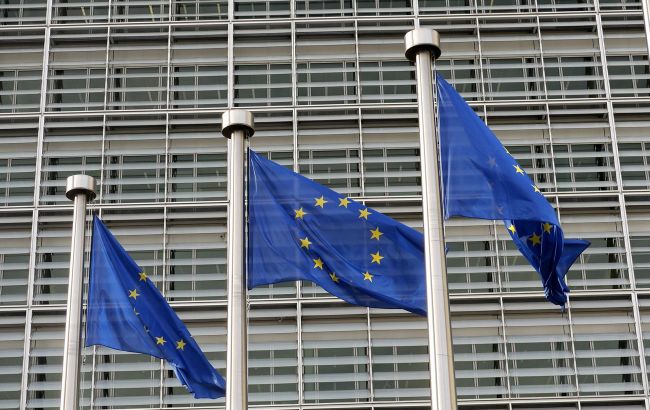EU Council proposes prison terms for aid to Russia in sanctions evasion
 Photo: EU Council proposes imprisonment for those assisting Russia in evading sanctions (flick.com/libereurope)
Photo: EU Council proposes imprisonment for those assisting Russia in evading sanctions (flick.com/libereurope)
The European Union has proposed criminalizing sanctions evasion, with the possibility of a five-year prison term for assisting Russia in circumventing these sanctions, according to the press release of EU Council.
"The Spanish presidency of the Council and the European Parliament concluded their negotiations for an EU law which introduces criminal offences and penalties for the violation of EU sanctions. This directive ensures that those who violate or circumvent EU sanctions will be prosecuted," the statement said.
This becomes particularly significant in the context of Russia's aggressive war against Ukraine.
Details of the law
The law stipulates that member states must classify certain actions as criminal offenses, including:
-
Assisting individuals subject to EU restrictive measures in bypassing travel bans.
-
Trading in goods under sanctions and engaging in transactions with states or organizations subject to EU restrictive measures.
-
Providing financial services or engaging in financial activities that are prohibited or restricted.
-
Concealing ownership of funds or economic resources by an individual, legal person, or entity subject to EU sanctions.
-
Incitement, aiding, and abetting these offenses will also be considered crimes. Trading in military materials will be a criminal offense not only if done intentionally but also in cases of serious negligence.
Offenders will be sent to prison
In the EU Council, it has been emphasized that member states must ensure that violations of EU sanctions are punished with effective, proportionate, and deterrent criminal penalties.
In the case of intentional violations, the maximum punishment should involve imprisonment.
"Concretely, member states must ensure that the crimes defined under this directive are punishable by a maximum penalty of at least one year of imprisonment or at least five years of imprisonment, depending on the offence," the release states.
Member states may decide to adopt decisions applying laws that provide for more severe penalties. In addition to imprisonment, those who violate EU restrictive measures may also be subject to fines.
Other proposals by the EU Council
Negotiators from the Council and the European Parliament agreed that legal entities could also be held accountable for offenses defined in this directive. This would occur when such a crime is committed for their benefit by a person holding a managerial position in the organization.
Legal entities violating restrictive measures may face sanctions, including disqualification from business activities and revocation of permits and licenses for economic activities.
Member states must also intensify their efforts to ensure compliance with EU sanctions. For this purpose, they will be required to establish a limitation period, i.e., time frames within which legal proceedings must be initiated, to ensure proper legal enforcement. Member states must also take measures for the freezing and confiscation of income obtained through the violation of sanctions.
The preliminary agreement will now be presented to the representatives of the member states (Coreper) for approval. If approved, the text will be officially adopted by both the Council and the European Parliament.
Russia evading sanctions
Recently, Russia signed a declaration with Iran to "counteract" sanctions imposed by the US, EU, and several other countries.
Media reports also revealed that after the start of full-scale Russian aggression through Belarus, luxury cars were imported into Russia, the export of which is prohibited due to sanctions by Western companies.
Finnish law enforcement uncovered a scheme to evade EU sanctions, where companies were supplying drones to Russia for millions of euros.

